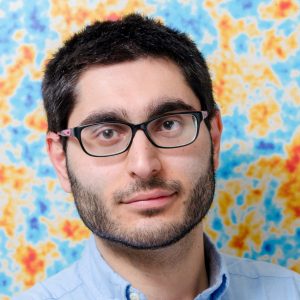Dimitrios Tanoglidis
Talk Title: Machine Learning for Astrophysics & Cosmology in the Era of Large Astronomical Surveys and an Application for the Discovery and Classification of Faint Galaxies
Watch Dimitrios’ Research Lightning Talk
Talk Abstract: Observational astrophysics & cosmology are entering the era of big-data. Future astronomical surveys are expected to collect hundreds of petabytes of data and detect billions of objects. Machine learning will play an important role in the analysis of these surveys with the potential to revolutionize astronomy, as well as providing challenging problems that can give opportunities for breakthroughs in the fundamental understanding of machine learning
In this talk I will present the discovery of Low Surface Brightness Galaxies (LSBGs) from the Dark Energy Survey (DES) data. LBGSs are galaxies with intrinsic brightness less than that of the dark sky, and so are hard to detect and study. At the same time, they are expected to dominate the number density of galaxies in the universe, which thus remains relatively unexplored. I will discuss the development of automated, deep learning-based, pipelines for LSBG detection (separation of LSB galaxies from LSB artifacts present in images) and morphological classification. Such techniques will be extremely valuable in the advent of very large future surveys like the planned Legacy Survey of Space and Time (LSST) on the Vera C. Rubin Observatory.
Bio: Dimitrios Tanoglidis is a fifth-year PhD student at the department of Astronomy & Astrophysics at the University of Chicago. He holds a BSc in Physics and MSc in Theoretical Physics, both from the University of Crete, Greece. His research interests lie in cosmology, analysis of large galaxy surveys, and data science applications in astrophysics. He has led the research for the discovery and analysis of Low Surface Brightness Galaxies from the Dark Energy Survey Data using machine learning. Interdisciplinary in nature, he is also pursuing a certificate in Computational Social Science.
